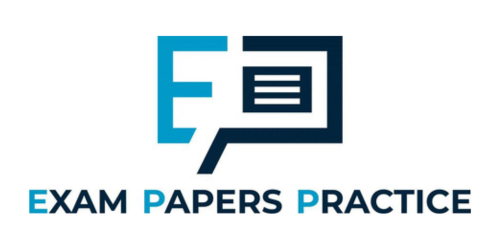A Level Statistics: Achieving an A* with Exam Papers Practice
Scoring an A* in A Level Statistics may seem like a daunting task, but with the right resources and study techniques, you can achieve your goal. At Exam Papers Practice, we provide tools designed to simplify your learning journey and help you ace your exams. To excel in Further Mathematics, we’re dedicated to help students excel by providing high-quality materials tailored for success.
Here’s everything you need to know to achieve top marks in A Level Statistics, along with tips for effective studying.
A Level AQA Statistics
A Level Edexcel (9-1) Statistics
A Level OCR Statistics
Core Topics to Master in A Level Statistics
Descriptive Statistics
This involves summarizing and interpreting data using measures such as mean, median, mode, variance, and standard deviation.
Tip: Focus on understanding how these measures describe data patterns and distributions.
Probability
Probability is foundational in A Level Statistics, covering events, conditional probability, and independent events.
Tip: Practice Venn diagrams and tree diagrams to visualize problems and make calculations easier.
Statistical Distributions
Learn about binomial and normal distributions. Recognize when to use each distribution and how to calculate probabilities.
Tip: Memorize key formulas and practice identifying the type of distribution from questions.
Hypothesis Testing
Master null and alternative hypotheses, test statistics, and p-values. Hypothesis testing is crucial for making data-driven conclusions.
Tip: Understand the logic behind hypothesis testing rather than just memorizing steps.
Correlation and Regression
Explore relationships between variables and learn to interpret scatterplots, correlation coefficients, and regression equations.
Tip: Use practice questions to learn how to identify strong and weak correlations.
Why Choose Exam Papers Practice for A Level Statistics?
At Exam Papers Practice, we offer a wide range of tools tailored specifically to A Level Statistics students. Here’s why our platform is your ultimate companion:
Comprehensive Practice Papers
Our practice papers are designed to mirror real exam questions, covering every topic in the syllabus. From probability to hypothesis testing, you’ll find materials to sharpen your skills.Step-by-Step Solutions
Each question comes with detailed, step-by-step solutions. These explanations help you understand the problem-solving process, making complex topics easier to grasp.Progress Tracking Tools
Use our platform to track your performance over time. Identify strengths and weaknesses to focus your efforts on areas that need improvement.Interactive Learning Materials
Our videos, quizzes, and worksheets break down key statistical concepts into manageable chunks, helping you retain information more effectively.
Effective Study Tips for A Level Statistics
To excel in A Level Statistics, it’s essential to approach your studies strategically. Here are some tips to guide your preparation:
1. Understand the Syllabus
Start by reviewing the A Level Statistics syllabus to understand exactly what topics will be tested. This ensures you don’t overlook any key areas.
2. Practice Regularly
Statistics is a practical subject, so regular practice is essential. Use the practice papers on Exam Papers Practice to simulate exam conditions and reinforce your learning.
3. Focus on Weak Areas
Analyze your performance to identify topics you find challenging. Spend extra time mastering these areas using our step-by-step solutions.
4. Use Flashcards for Formulas
Memorizing statistical formulas is critical. Create flashcards for quick reviews, or use our pre-made flashcard sets available on the website.
5. Learn to Interpret Graphs and Charts
Many exam questions involve interpreting data from graphs, histograms, and box plots. Ensure you’re comfortable reading and analyzing these visuals.
6. Group Study Sessions
Collaborate with classmates to discuss difficult topics. Explaining concepts to others is a great way to deepen your understanding.
7. Time Management
Allocate time for each question during your exam. Practice pacing with timed mock exams from Exam Papers Practice.

